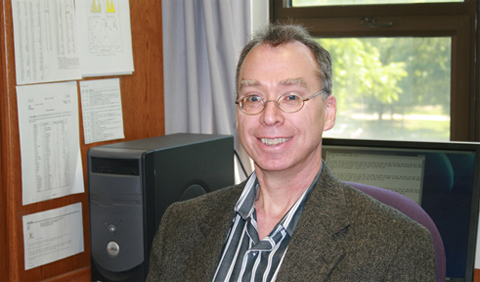Dr. Kenneth Hicks, Professor of Physics & Astronomy at Ohio University, authored a column in the Columbus Dispatch headlined “Astronomy: Telescope network helped ID black hole, shed light on galaxies’ formation.”
How do you take a picture of a black hole, which, of course, is black against the background of a black sky? You capture the light from the stuff orbiting the black hole. This stuff, mostly dust, goes around the black hole so fast that it bumps into itself and heats up, giving off microwaves that astronomers can capture.
What you might expect to see is a picture that looks like a doughnut, with a black hole in the middle. The doughnut part is from light given off by the stuff orbiting it. That is exactly what was seen in an image released last week by the network of telescopes called the Event Horizon Telescope. These telescopes detect light (electromagnetic waves) at radio frequencies. They are linked by a network that enables them to work together as if they were pieces of a giant telescope the size of Earth….

















Comments